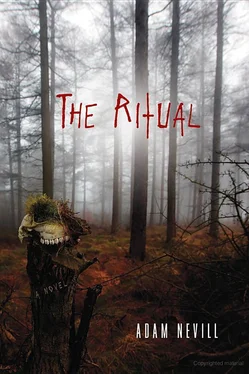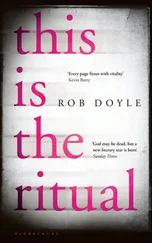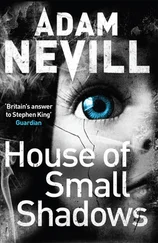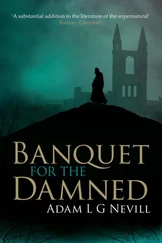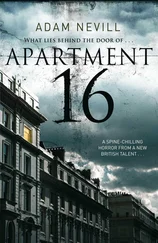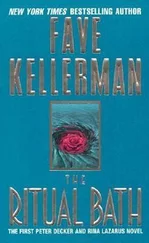Luke rested on his shins, the rifle across his naked thighs, and closed his eyes. He knelt in the grass between Fenris and the old lady.
Could he get up again? He would have to; he needed clothes, more water. A bandage too, or anything soft and clean to wrap around his hip and plug his chest. He was sure the cuts were widening as he moved and breathed. His left arm was going stiff and he could barely raise it above his waist. He was slowing down, he was coming to a stop. He blew his lungs empty. A cigarette would probably kill him, but he would kill for one right now.
He turned his head and looked back at the house, at the peaked pointy roof. He wasn’t finished here. He stood up, wincing. The giving and the taking had to stop. The door had to be closed. Loki had known about this place; others might do too. The barrier between the world and another much older place was much thinner here than elsewhere; things came and went. He understood that.
His friends had been slaughtered like game in season, like livestock. They had been hunted, swiftly despatched, field-dressed, and then displayed in the trees. An account had to be settled. For them. He’d do anything for them now.
Why had the old woman not called it home to clean out her trespassers? Luke closed his eyes. His skin shivered. His head hurt as it wondered. There was no one to tell him anything. Not out here. He just guessed and flinched like a small animal.
Because of the rifle. And sheath knives. Because it could be hurt. She was protecting it . Her mother. And protecting the old family upstairs. It required an inside job and he was the man on the inside. Maybe.
But he did know that some species should become extinct. Luke opened his eyes.
Moder ’s rule and her pitiful congregation had to end. She was an isolated God; the last black goat of the woods. What he guessed was her youngest and most presentable daughter did her best to keep it all going up here. Maybe she was the girl left behind to look after mother. He did not know; he was guessing again. But it just all needed to stop. No more sons and fathers and friends should hang from trees. Not that, ever.
Luke walked back to the house; every muscle and sinew ached from a bruising so deep he doubted he could ever be fixed. The horizon of treetops juddered in his vision. Somehow the sky was all white now too, but he was grateful for the rain. It came down cold and hard. Was never far away up here. Just changed places with the snow. Over and over, forever.
He looked at Fenris. Reached down, gripped the sticky handle of the Swiss Army knife and yanked it out. Fenris sat up, head lolling, like Luke was leading him by a hand, then dropped back down to the blood and the soil. Luke stabbed the blade into the turf twice to clean it.
On the porch, he put down the rifle and the knife and took off the little white dress. Dropped it over Loki’s terrible face. But left the crown of dead flowers on his head; it seemed to be holding his thoughts together. And then he looked down the hallway to the staircase.
Through the door at the end of the corridor on the first storey, and up into the attic he went on feet so slow and clumsy they must have all heard him coming. Up there, in the warm dusty timeless darkness, they knew he was coming for them.
And into the lightless place at the top of the house, he crept and fumbled about, naked and bloodied as a newborn. He had no light; couldn’t get it together enough downstairs to find an oil lantern and matches. But he went on memory to the places where he remembered the little figures to be sitting. And now he was up there, he found they were all too old and too weak to do anything but mutter.
The rain struck the roof and was amplified inside the attic space. Still, he could hear them all about him. Their voices were rustles, sometimes scratchy like the voices in old radios dimmed to a murmur. And they were not laughing now. They sounded confused, like elderly people who had awoken in beds and forgotten where they were.
He went in low, head down, ears cocked to their sounds. At the far end of the room, he knelt down. Laid the rifle upon the floor. Then fumbled his hands around the two little chairs, patting his shaking hands over their robes, dry as old bread, then over brittle limbs no thicker than woodwind instruments, until he found the first small head.
‘You killed them amongst the stones,’ he whispered. ‘Yes, you showed me. Carried them out in wagons to die.’
He placed his finger atop the slowly moving skull, raised the knife up high, and then brought the blade down.
Through it went, through skin no stiffer than yellowing paper, and through an avian skull thin as eggshell, and into what remained of a living organ. Old magic may have kept it living, but new steel ended its long and miserable existence; a life that may well have begun when those great trees out there were mere saplings.
The other seated figure rustled in the darkness and tried to bite his fingers. He heard its dry jaw clacking.
‘I saw your old house. I was there. You used to string them up over a basin. You showed me. Did you suckle your God on blood?’
The second figure was a woman, he sensed, though it was pitch-black in the attic, and they were so old when he had first seen them he could not really be sure. But he found himself amazed at just how accurate his instincts could be when he had nothing else to go on.
When his fingers found her in the dark, he heard her cartilage beak creak open again, then felt the snap of dry gums upon a finger joint. It did not hurt, but he had to stifle a scream all the same. She resisted to the last, like a dying insect with its stinger raised at a bird’s sharp face.
He despatched the second fossil swiftly, struck it hard with the knife held like a dagger, and caved in half of its skull while throttling its wizened neck at the same time. He felt the head collapse to dust. Breathed some of it in, coughed, spat.
He stood up, and where they rattled and muttered against the walls, on either side of the little throne room, he felt for their sharp-featured faces, their old dry heads, their desiccated grinning, and he punched the knife through them. Through them all. One by one. Broke every head to dust. Until nothing whispered or shook within its mooring any longer.
Once he had finished with them, he bent over and retrieved the rifle. And while turning his thoughts to finding clothes, far out in the woods he heard a sound so terrible, he lost his balance and sat his bare buttocks down in the hot darkness of the attic.
The dreadful bullock bark. The devil-dog yipping.
The wet sky, the aged trunks of sleeping trees, the cold unfeeling earth, functioned as an acoustic chamber, and within that space the oldest and most poignant sound of anguish pierced him, and every living thing within earshot, to the marrow. A mother’s cry.
Moments later, he heard Surtr too. She unleashed a scream and he knew she had met a sudden and painful end in the claws or teeth of something much greater than herself. Moder was coming home now. Drawn by the loss of her own.
Luke scrabbled and half fell down the attic stairs. He ran into Loki and Surtr’s old room and peered out at the trees. Little of the sun was showing itself, and seemed to grow afraid and moved back behind the low grey clouds.
Again, the bullock cough. He could not see her, but knew she was much closer now. Somewhere nearby, Moder ’s black flanks were shuddering with emotion, and the yipping that came out of her trembled. She was crazed with rage. Blind. Intent.
Truck. Truck. Fucking truck.
Knife in one hand, rifle in the other, naked and begrimed, he ran down the stairs on skittish feet and staggered into the kitchen. Peered out through the window.
Читать дальше
